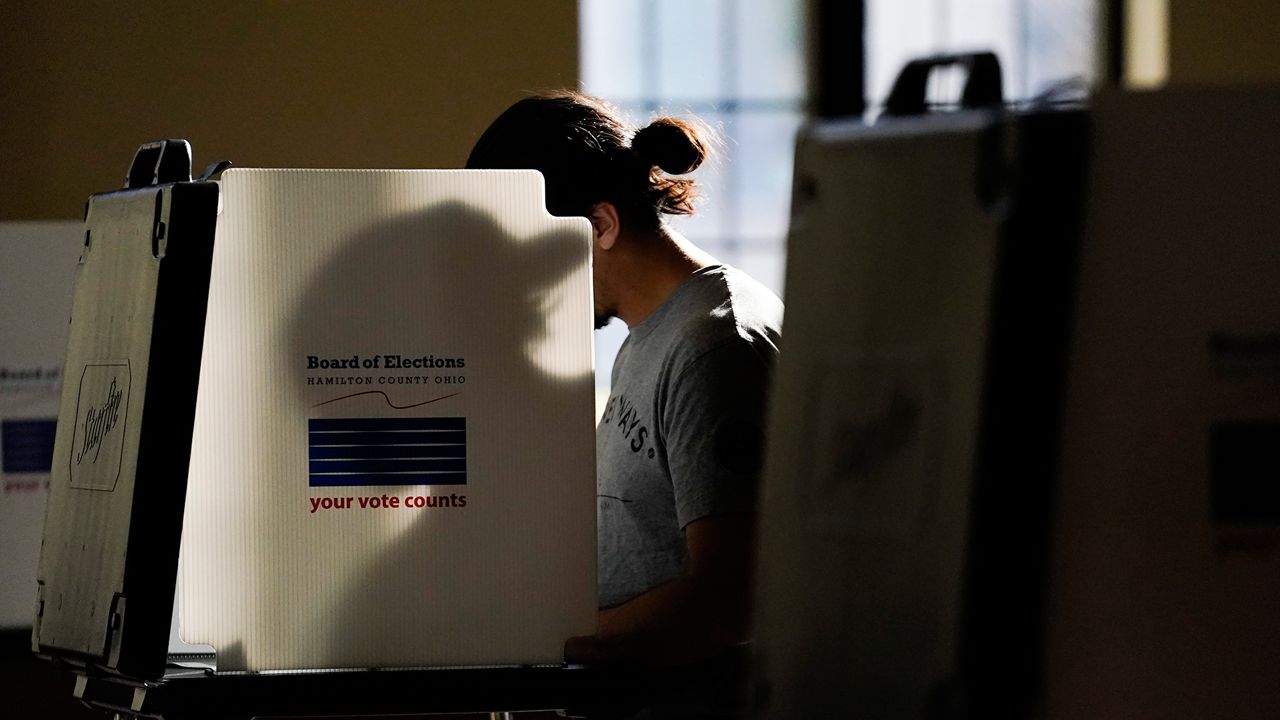WASHINGTON, D.C. – Behind a pair of unassuming doors in the basement of the U.S. Capitol, the House Intelligence Committee conducts most of its business.
Usually in private and with no smartphones allowed, members sort through classified documents, get briefed on threats, and conduct oversight of the country’s intelligence agencies.
After Republicans flipped the House in the 2022 midterm elections, they selected Ohio Congressman Mike Turner to chair the panel. He’s now one of only eight lawmakers who are granted access to the most sensitive intelligence gathered by U.S. officials.
Turner, who represents Ohio’s 10th Congressional District in the southwest part of the state, has been in Congress since 2003. He’s an old-school politician: a policy wonk with four academic degrees who says he approaches serving in Congress like his time as mayor of Dayton, his hometown. He does lots of homework, focuses on the issues, and appears publicly as a statesman – now as he travels the globe, rather than through the Gem City.
Earlier this month, Turner led a bipartisan delegation to Jordan, Israel, and Egypt. It’s one of dozens of international trips he’s made in his official capacity as a member of Congress, specifically as a member of the Intelligence Committee and a senior member of the Armed Services Committee.
What is gained by these trips abroad?
“Well it’s very important to be able to sit across from the people who are actually doing the work, as opposed to just reading a report that someone else wrote about what they heard that this individual was doing,” Turner told Spectrum News in a wide-ranging interview in his Capitol Hill office last week.
His work also is motivated by the fact that Wright-Patterson Air Force Base sits in his district. It employs over 30,000 people inside the fence and another 20,000 off the base.
Turner said he feels connected to the many base employees who work in classified settings.
“They can’t go home and tell their loved ones what they’ve done, but people know that they’re contributing and making an impact to keeping our country safe,” Turner said. “What we try to do on the Intelligence Committee is really reflect our appreciation for those who are doing the tough work.”
In February, while appearing at the Munich Security Conference in Germany, Turner recounted House Speaker Kevin McCarthy (R) and House Minority Leader Hakeem Jeffries (D) coming to the Intelligence Committee’s first meeting of the year with a request.
“We had the lead Republican and the lead Democrat come before us and charge us with, ‘You will work in a bipartisan way.’ They said that they wanted the culture that had been there before to end. And they wanted the people to work on – big surprise – national security. And everyone dedicated themselves to that,” Turner told the audience.
Under Democratic leadership, the committee became the host of then-President Donald Trump’s first impeachment inquiry in 2019. Highly-politicized hearings into Trump’s push for Ukrainian officials to investigate then-candidate Joe Biden’s family propelled a normally behind-the-scenes panel into the spotlight.
“There was a time when the committee was just in partisan fights and our national security was neglected,” Turner said.
Now, the committee is working on a host of bipartisan issues. One is advocating for continued support of Ukraine as its war against Russia rages on.
“This is the frontline of authoritarianism versus democracy, and we need to be on the right side of democracy,” Turner said.
Another is the recent revelation that presidents and vice presidents from both parties have mishandled classified documents. Turner and his committee colleagues are now suggesting a new filing process is needed.
“This is not that hard, but they are getting it very, very wrong,” he said.
His counterpart, Connecticut Democrat Jim Himes, agrees with the approach. In a statement to Spectrum News, Rep. Himes said the panel’s “work is best done on a nonpartisan basis. Chairman Turner has been an excellent partner in maintaining [the committee’s] serious, policy-focused approach to protecting our national security.”
The two regularly appear together in TV interviews and travel abroad, most recently to the Middle East.
“I think that when any committee makes that commitment, that we’re going to work on a bipartisan basis, that it’s important for the public to know that it does work, that it does happen. That everybody in Congress is not divisive,” Turner said.
But Turner does not avoid division completely. He has partnered with fellow Ohio GOP Rep. Jim Jordan in investigating a letter sent by dozens of former intelligence officials in October 2020 that claimed a story about President Biden’s son, Hunter, had all the hallmarks of a Russian information operation.
Republicans like Turner allege the letter was political, not based on actual intelligence, and may have improperly influenced the 2020 election results.
Jordan currently chairs a committee focused on what Republicans call the “weaponization of the federal government.” The group regularly claims the very intelligence agencies Turner works closely with are corrupt and biased against Republicans.
Spectrum News asked Turner if he shares the concerns that Jordan and the other committee members have raised over the last few months.
“Well I think we certainly have to be careful because we give the intelligence community some of the most exquisite capabilities to gather intelligence,” Turner said. “And of course those capabilities would be of great risk if they are turned against the rights of the American public. So one of the aspects that we have to do, as a Congress and certainly as our committee, is in oversight.”
While Congress seems to get more partisan year after year, Turner said he feels his experience proves that serious work can still get done by the members who care about substance over showmanship.
“When you get down to the work of national security, you will find that people do tend to work more on a bipartisan basis because they have the same goal and objective,” Turner said.










